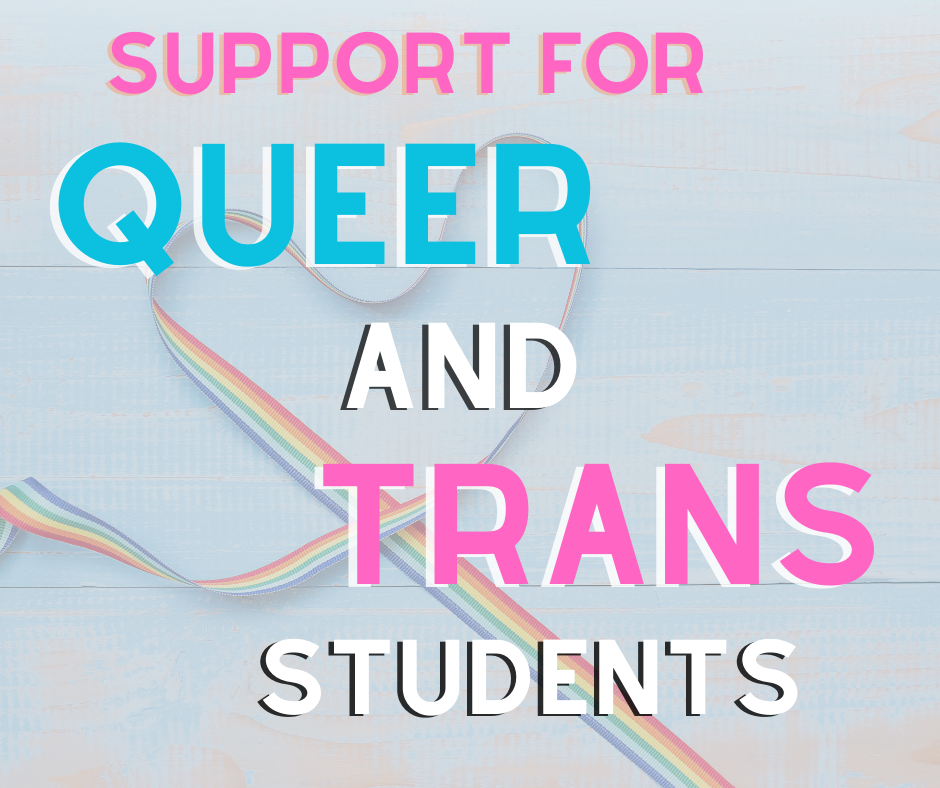An online three-part workshop series, hosted by the Queer and Trans Community College Oral History Project began its educational series on how to support LGBTQ+ students on Feb. 6.
The year-long research project led by Sara Smith-Silverman, a professor of history and LGBTQ+ studies at American River College, focused on the lives and educational experiences of queer and transgender community college students in California, according to the project’s website.
“One of the goals was to help community college educators in particular do a better job providing more nuanced support for queer and trans community college students,” Smith-Silverman, who uses she/they pronouns, said.
The project focuses on the stories of 50 queer community college students in the form of video-recorded interviews. All interviews and other information on how to support LGBTQ+ students can be found on their website.
“We are in the beginning stages of how we serve our queer and trans students,” Smith-Silverman said. “While there are good intentions, a lot of people who work at community colleges are lacking the knowledge, understanding and empathy necessary to serve and support these students as they deserve to be supported.”
Smith-Silverman said they see the lack of support in various ways. They said support services for LGBTQ+ students are largely underfunded and there should be more support around hiring staff with better pay for all PRIDE Centers across the district.
“The focus of the project has largely focused on the classroom and when it comes to serving queer and trans students in particular, our equity work has not focused on what is happening inside the classroom as much as it should,” Smith-Silverman said. “We see that queer and trans topics are almost totally excluded from the curriculum and it is very rare to find classes that focus entirely on the queer and trans experience.”
ARC is currently the only Los Rios campus to offer a degree in Social Justice Studies: Women, Gender, LGBTQ, according to the Los Rios website.
“One of the first steps is making sure that queer and trans students are welcome and seen in every space other than the PRIDE Center,” said Dr. José Alfaro, a professor of English and queer studies at Cosumnes River College.
Alfaro, who uses he/him pronouns, said sometimes an emphasis is put on helping certain populations by directing them to a specific center thinking it will help them or solve their problems, but in reality that doesn’t always work.
Twenty-year-old psychology major Allan Gaither, who uses he/him pronouns, explained his experiences as a trans, asexual and queer student.
“I have taken some classes that were very difficult to endure because they were very poorly informed,” Gaither said. “It is incredibly stressful having to be a guide for the professor and having to be respectful in correcting their misinformation.”
Other students also shared similar experiences on how there is a lack of inclusive and well-informed curriculum in the district.
“Queer and trans people exist now, they existed in the past, and they will exist in the future,” said 27-year-old nursing major Mico Mastrili, who uses he/they pronouns. “Just touching upon the subject in class kind of shows those students that ‘Hey, we see you, you matter.’”
Thirty-two-year-old art major Caitlin Cox, who uses she/her pronouns, said she doesn’t recall queerness being included in any of her classes other than her queer studies class.
“Potentially it was mentioned in like a more U.S. history focus and it certainly was an afterthought,” Cox said.
Alfaro said faculty members need to see that students are willing to step up to difficult material. He said students are interested in these topics and they want to learn about experiences that are also outside of their identities.
“Take the space and make sure students feel like their voices are being heard and that their identities are respected,” Smith-Silverman said. “If you do that a lot of students will be more invested in the class and understand that you care about who they are as people.”
The Queer and Trans Community College Oral History Project will host its final workshop on March 5 from 12-2 p.m and registration can be found here.

